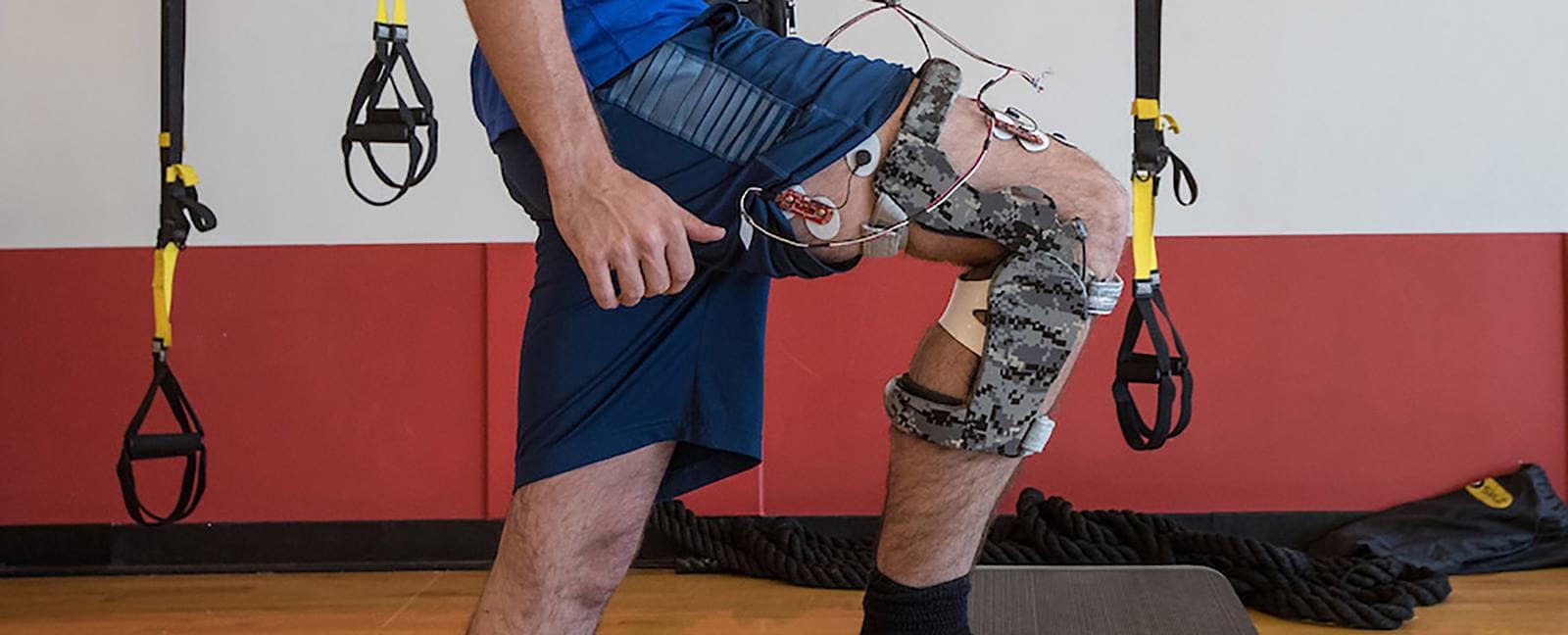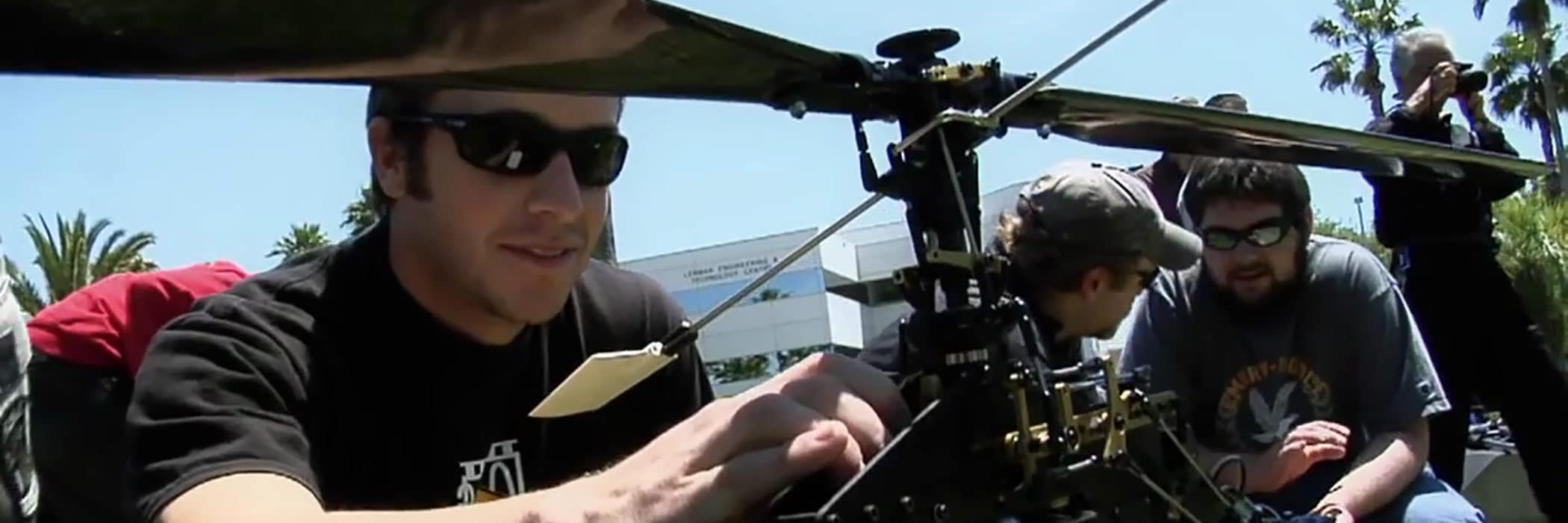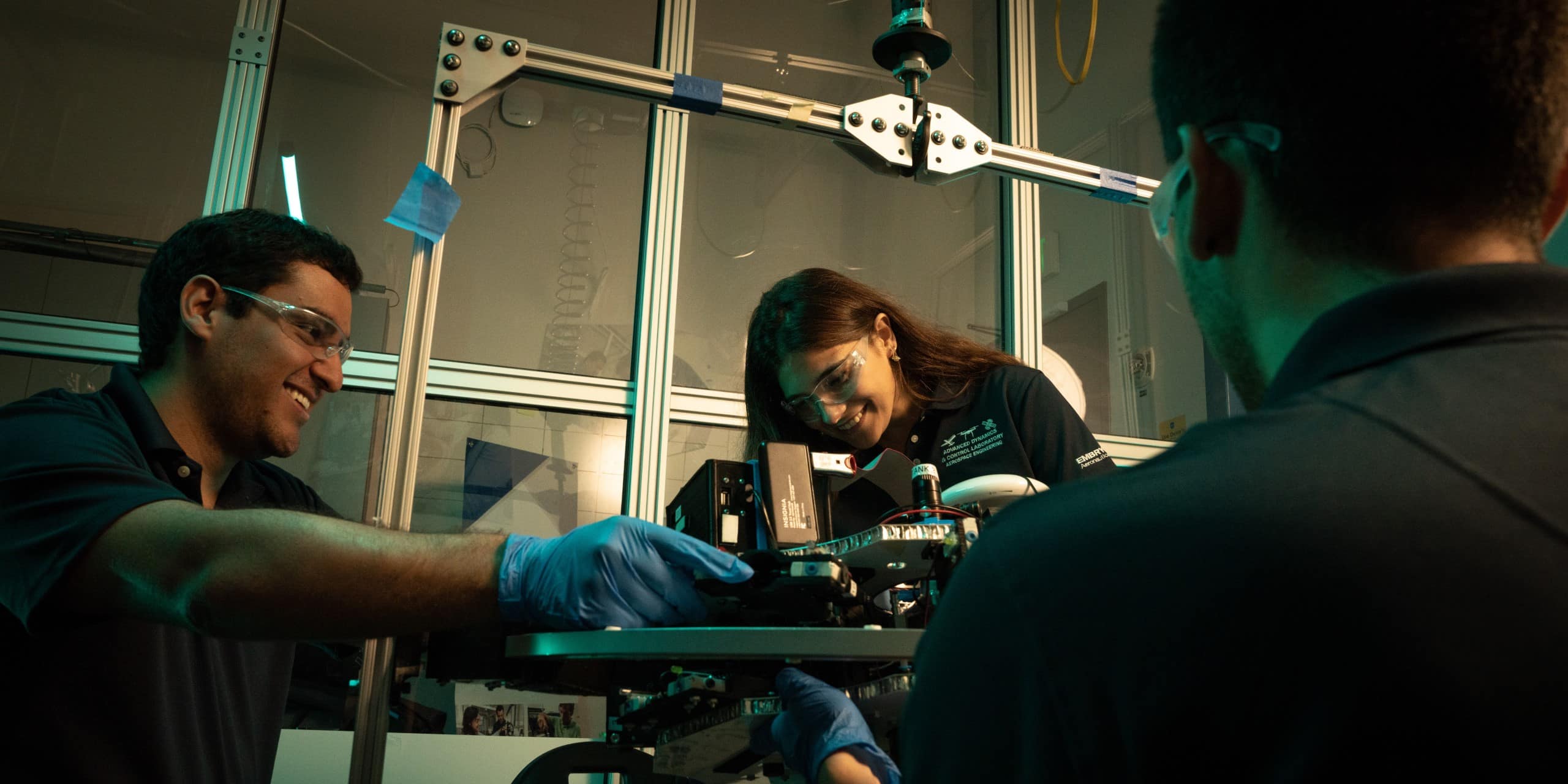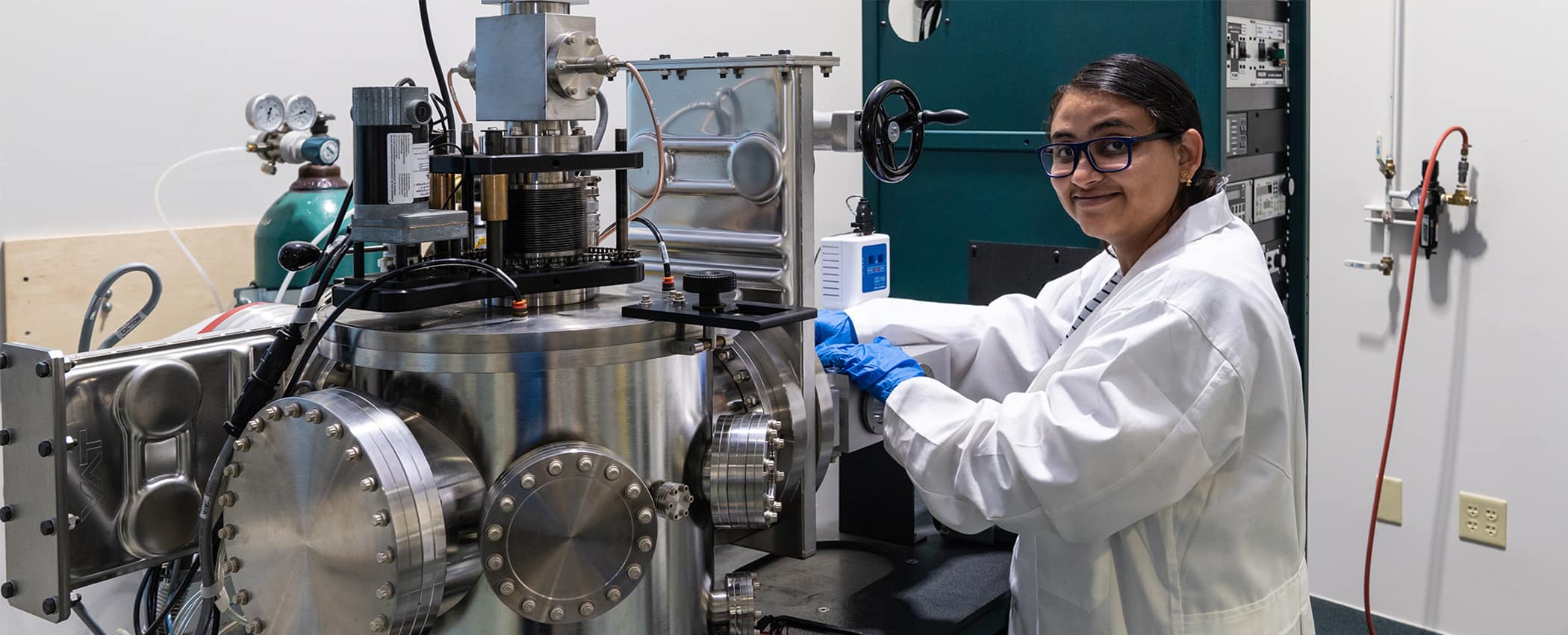
Ph.D. in
Mechanical Engineering
This research-oriented program prepares candidates to meet the growing demand for research and development experts in the corporate, government or academic arenas.
The requirements for the Ph.D. in Mechanical Engineering at Embry-Riddle’s Daytona Beach Campus are focused heavily toward enabling and requiring the student to establish, complete and defend a program of original research.
There is high demand for expertise in the field of Mechanical Engineering in a wide range of industries, including aerospace, aviation, automotive, biomedical and energy systems industries.
In the program, students will conduct guided independent research that will culminate in a dissertation that will add to the knowledge within the field. Research activities are under the direction of experienced, dedicated Embry-Riddle faculty and fellow students in state-of-the-art labs.
With this advanced degree, students gain a deeper understanding of mechanical engineering to fulfill industry needs, including aviation and aerospace, automotive, energy, manufacturing and countless others.
Graduate students typically have many professional networking experiences and may pursue an internship relevant to their area of focus.
DETAILS
About Mechanical Engineering at the Daytona Beach, FL Campus
Housed in the Department of Mechanical Engineering of the College of Engineering, the Ph.D. in Mechanical Engineering program is research-oriented and will prepare graduates for careers in research and development in the corporate, government or academic arenas.
Successful students will be self-motivated, have a high level of academic knowledge and be excellent critical thinkers.
Students entering the program with a bachelor’s degree must also fulfill the requirements of the Master of Science in Mechanical Engineering. The M.S. in Mechanical Engineering will be awarded upon completion of the M.S. requirements, independent of the Ph.D.
Ph.D. students will complete 18 credit hours of coursework relevant to their research, followed by an original research project guided by an experienced faculty advisor and culminating in a dissertation.
Details about Program Educational Outcomes, Student Learning Outcomes and Enrollment Data can be found on our Mechanical Engineering Program Accreditation Information page.
Student Learning Outcomes
Students will:
- Formulate critical and creative thought to solve problems.
- Develop original research in an ethical and responsible manner.
- Formulate and defend original research while demonstrating knowledge of advanced engineering tools and professional skills consistent with expectations.
- Author and effectively communicate research methods and results.
Get Started Now:
Summary
42 Credits
Estimate your tuition by using the Tuition Calculator
View Financial Aid Information
Learn about our General Education
Find out about transferring credits to this degree
Learn more about our Veterans & Military benefits
View our Academic Calendar












